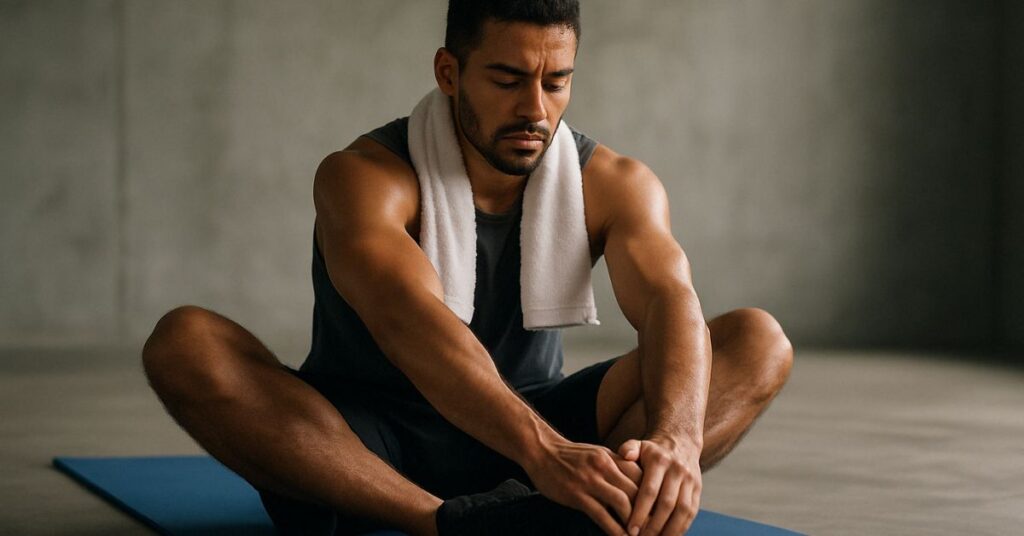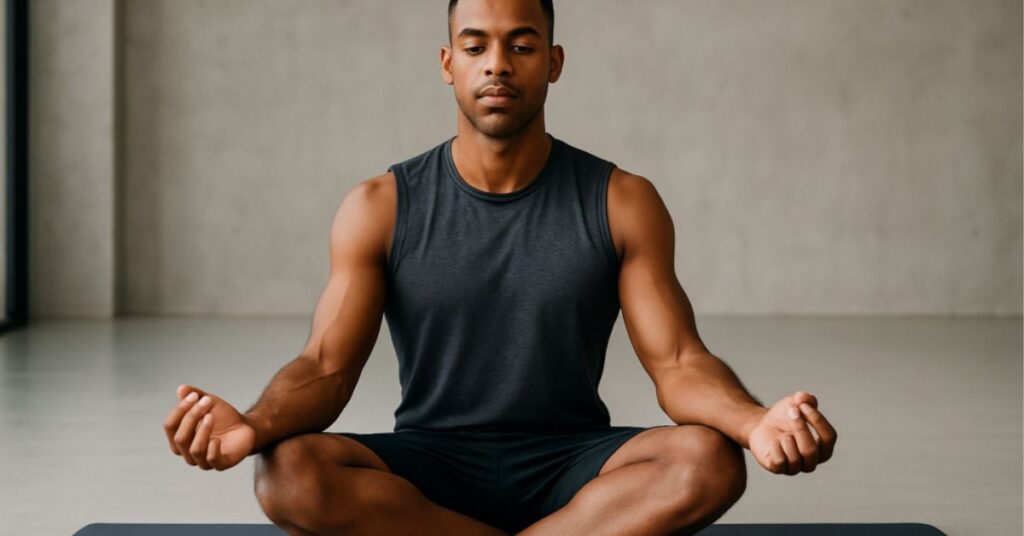Table of Contents
ToggleIntroduction
Athletes often focus intensely on physical strength, speed, and stamina—but mental strength is just as important. In recent years, meditation and mindfulness practices have become secret weapons for elite and everyday athletes alike.
From Olympians to weekend warriors, more and more athletes are turning inward to sharpen their edge, speed up recovery, and handle pressure like pros. But what exactly does meditation do for the athletic mind and body?
In this post, we’ll dive into the science-backed and experience-driven benefits of meditation for athletes—and how you can integrate it into your own training routine.
1. Sharper Focus and Mental Clarity
One of the most immediate benefits of meditation is improved concentration. For athletes, this means heightened awareness of the game, quicker reaction times, and better decision-making under pressure.
Mindfulness techniques help athletes block out distractions—whether it’s a screaming crowd or internal doubt—so they can stay locked into the moment.
Pro Tip: Try breath-focused meditation before practices or games to ground your attention.
2. Reduced Performance Anxiety and Stress
Nervous before a big race or match? Meditation has been shown to reduce cortisol levels, the hormone associated with stress.
Athletes who meditate regularly report feeling calmer, more in control, and less reactive in high-stakes situations.
This inner calm not only improves performance but also fosters a healthier relationship with competition.
3. Faster Recovery and Injury Rehabilitation
The recovery process isn’t just physical—it’s mental too. Meditation can improve sleep quality, reduce inflammation, and accelerate healing by activating the body’s parasympathetic nervous system (rest and digest mode).
Visualization techniques, often paired with meditation, are even used to mentally rehearse recovery, which can boost motivation during rehab.
4. Better Body Awareness and Movement Control
Athletes must be deeply tuned into their bodies—especially in dynamic sports. Meditation enhances proprioception, or your body’s sense of its position in space.
By improving awareness of posture, breathing, and physical sensations, athletes can move more efficiently, avoid injury, and stay connected to their body’s signals.
5. Enhanced Emotional Regulation and Resilience
Meditation teaches athletes how to observe emotions—like frustration, fear, or anger—without getting swept away.
This emotional intelligence boosts mental resilience, allowing athletes to bounce back faster from failure, adapt to unexpected outcomes, and maintain composure through setbacks.
6. Improved Sleep Quality and Cognitive Recovery
Sleep is crucial for athletic recovery. Meditation can help athletes fall asleep faster, sleep more deeply, and wake up feeling restored.
Sleep-focused meditations or body scans before bed reduce mental chatter, making it easier to wind down after intense training or competition.
7. Long-Term Athletic Longevity
Burnout is real—even for passionate athletes. Meditation promotes emotional balance, reduces overtraining risk, and helps athletes develop a sustainable mindset that supports long-term health and motivation.
By regularly checking in with themselves, athletes can avoid the mental traps of comparison, perfectionism, and chronic fatigue.

How to Start Meditating as an Athlete
- Start small: 5–10 minutes a day is enough to build the habit.
- Use guided apps: Headspace, Calm, and Insight Timer are great starting points.
- Be consistent: Like physical training, results come with repetition.
- Mix it up: Try breathwork, body scans, visualization, or walking meditation.
Athletes Who Meditate
- LeBron James uses Calm and attributes mindfulness to his mental endurance.
- Novak Djokovic credits meditation as a key tool for his dominance in tennis.
- Kobe Bryant practiced meditation daily to stay focused during high-pressure moments.
Final Thoughts
Meditation isn’t just a wellness trend—it’s a performance enhancer. For athletes, it offers a powerful edge that complements physical training with mental mastery.
Whether you’re aiming for the podium or personal bests, training your mind is just as essential as training your body. Start meditating—and elevate every aspect of your athletic game.
FAQs
How long should athletes meditate daily?
Even 5–10 minutes a day can lead to noticeable benefits. Consistency matters more than duration.
When’s the best time for athletes to meditate?
Before training to increase focus, after workouts to aid recovery, or before bed to improve sleep.
Can meditation help with sports injuries?
Yes, meditation can reduce stress hormones, promote healing, and keep athletes mentally engaged during rehab.
Do team sports benefit from group meditation?
Absolutely. Group meditation can improve team cohesion, shared focus, and collective energy.
What type of meditation is best for athletes?
Mindfulness, visualization, and breath-focused meditation are particularly beneficial for enhancing performance and recovery.
Related posts:
 What’s a Fever Dream? The Science Behind Fever Dreams and Neurological Explanations
What’s a Fever Dream? The Science Behind Fever Dreams and Neurological Explanations
 Mindfulness Breathing Exercises: A Guide to Calming Your Mind
Mindfulness Breathing Exercises: A Guide to Calming Your Mind
 The Complete Rudraksha Bead Guide: From 1 Mukhi to 21 Mukhi Rudraksha – Benefits and Spiritual Significance
The Complete Rudraksha Bead Guide: From 1 Mukhi to 21 Mukhi Rudraksha – Benefits and Spiritual Significance
 Why Is My Attention Span So Short? 7 Hidden Reasons You’re Struggling to Focus and How to Fix Them
Why Is My Attention Span So Short? 7 Hidden Reasons You’re Struggling to Focus and How to Fix Them